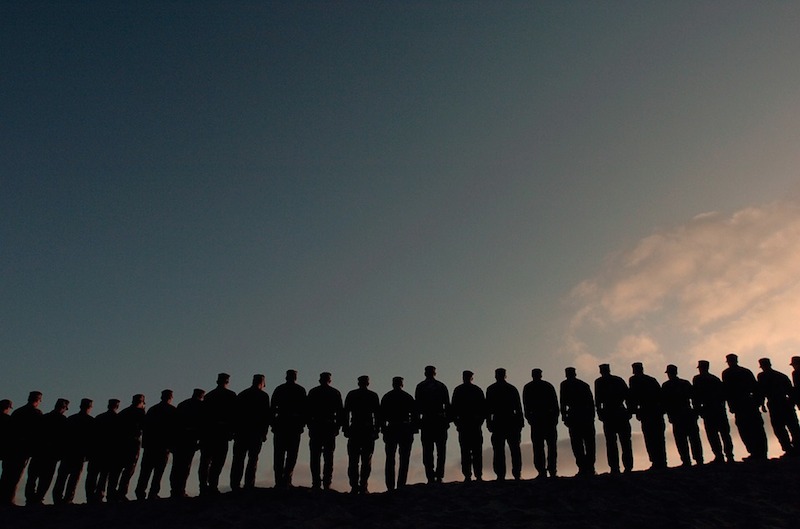
Silhouettes of soldiers standing on a ridge at sunset. (Image from Pixabay)
Canadian military personnel more likely to think about suicide but also to seek help, compared with civilians
Canadian military personnel have higher rates of suicidal thoughts and of suicide attempts but are also more likely to access mental health supports compared with civilians, according to new research published in the CMAJ (Canadian Medical Association Journal).
Suicide prevention has been a focus in Canada in recent years, with mental health initiatives such as the Mental Health Commission of Canada and major investments in military and veteran mental health aimed at reducing this cause of death. Despite these initiatives, suicide rates have remained mostly unchanged.
The media in Canada has criticized the Canadian Armed Forces (CAF) over the lack of mental health services for military personnel. However, the CAF has engaged in greater investments in mental health services renewal over the past decade, relative to the Canadian public system. Over the same general period, more than 40,000 CAF personnel deployed in support of the mission in Afghanistan. There is a lack of information on the relative trends in suicidality and in use of mental health services in the two populations.
Researchers from Canada and the United States looked at data from four nationally representative surveys in 2002 and 2012-2013 to compare rates of suicidal thoughts and rates of help seeking in military and civilian populations. They found that in 2012-2013, people in the Canadian Armed Forces had a 32 per cent increased odds of thinking about suicide, and 64 per cent increased odds of planning suicide than the civilian group.
“Time trends of increasing lifetime suicide attempts and higher prevalence of suicidal ideation and plans among military samples compared with civilians is a concerning and important observation with public policy ramifications,” writes Dr. Jitender Sareen, Department of Psychiatry at the University of Manitoba, Winnipeg, Manitoba, with coauthors.
They also found that among those who served in the Canadian Armed Forces, suicidal ideation in women, but not men, decreased over time.
“Prevalence of lifetime and past-year suicidal ideation among male Canadian Armed Forces members did not change over time, but females in the Canadian Armed Forces had a significant decrease in life-time suicidal ideation,” write the authors. They suggest it may be that women are more likely to seek help for mental health issues than men.
People with suicidal thoughts in the military were significantly more likely to seek help, and accessed more types of professionals for help, compared with civilians who had suicidal thoughts. Care-seeking for suicidality increased in both populations, but the increase was significantly greater in the CAF.
“This study supports the criticism that the Canadian public health care system is not universal but has significant inequities, inefficiencies and varying levels of service,” states Sareen. “It also speaks to potential value of incremental investments in the public system, similar to those made in the CAF.”






